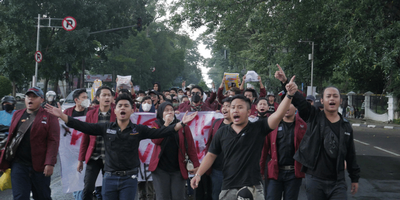Appointing Top Officials in a Democratic Indonesia: The Corruption Eradication Commission
Democratisation has brought checks and balances, and new state agencies, to Indonesian politics. Checks and balances and greater responsiveness to the public have also been sought in the appointment processes for the senior management of these new bodies. This paper examines the merits of the new appointment processes, in particular sequential selection, through a case study of the leadership selection process for the Corruption Eradication Commission. It reviews the process stipulated by law and its implementation in 2003, 2007 and 2010. The study argues that, while the short-listing of candidates by the selection committee aims at unprecedented openness and meritocracy, the process used has been tedious and has given insufficient weight to candidates’ track records. Despite criticism that the final selection was pre-determined, the paper concludes that the overall selection process has upheld the principle of checks and balances between the executive and the legislature and ensured diversity of political support.
https://doi.org/10.1080/00074918.2011.619052







